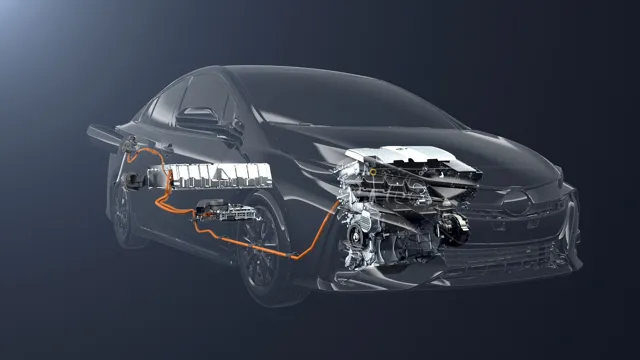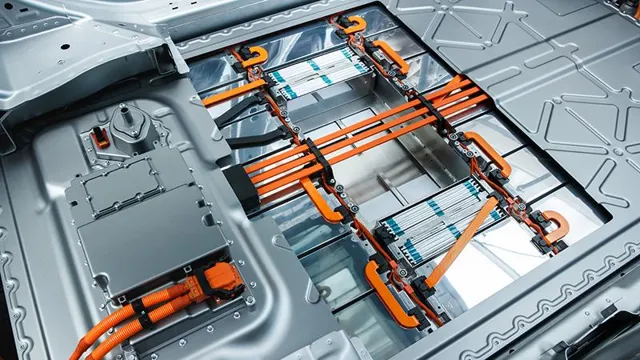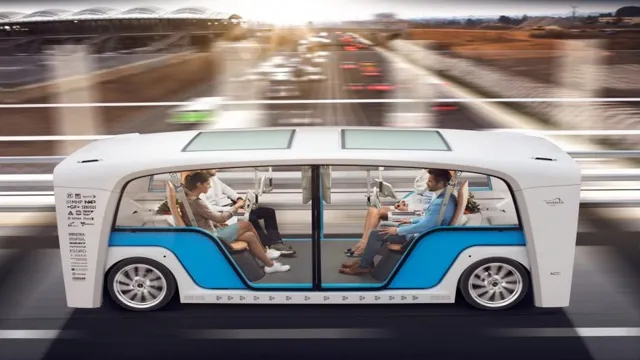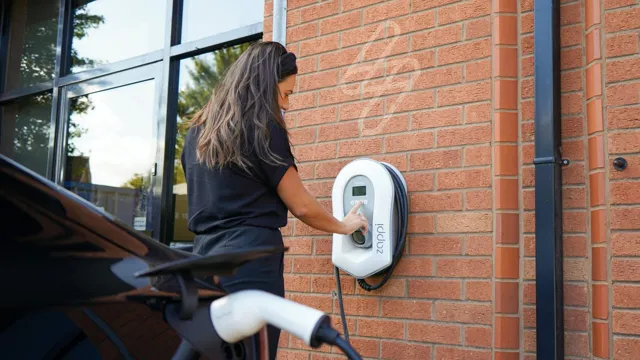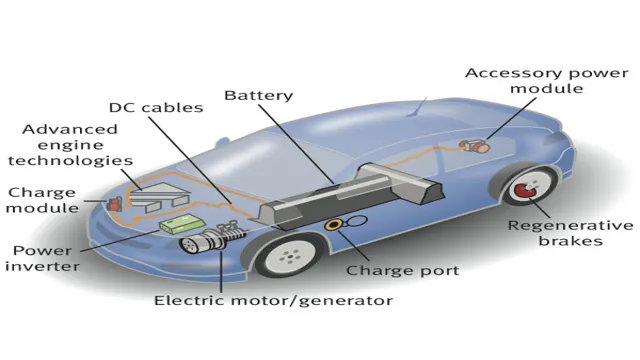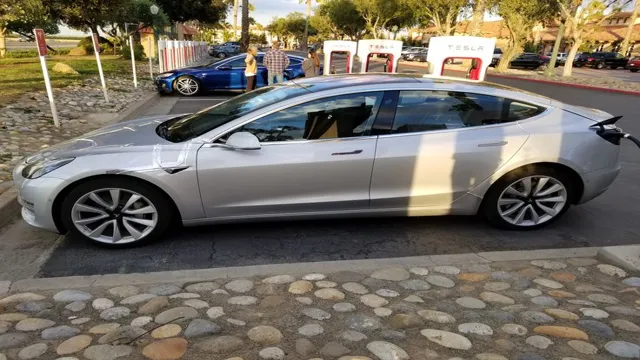Revolutionizing the Road: The Latest Advances in Hybrid and Electric Car Technology
Have you ever thought about switching to an electric or hybrid car? With the advancements in technology, the automotive industry has made incredible progress in designing vehicles that are eco-friendly, fuel-efficient, and stylish. Hybrid and electric cars are at the forefront of this transformation and are becoming more and more popular among drivers. One of the major benefits of hybrid and electric cars is their fuel efficiency.
As they rely on electric power, they produce less greenhouse gases and are less dependent on fossil fuels. Additionally, they offer significant financial savings over time, as electricity is often cheaper than gasoline. In terms of performance, hybrid and electric cars have made significant strides in recent years.
Early models often suffered from issues such as limited range and slow acceleration, but advances in technology have solved many of these problems. Modern electric cars can travel up to hundreds of miles on a single charge, while hybrids offer a smooth blend of electric and gas power for optimal performance. Moreover, hybrid and electric cars are no longer just for environmentalists or tech enthusiasts.
Many major automakers now offer hybrid and electric models, including luxury brands like Tesla and BMW. With attractive designs and competitive prices, these cars have become a viable option for all drivers. In conclusion, the advancements of hybrid and electric cars have revolutionized the automotive industry, providing drivers with affordable, eco-friendly, and stylish options.
As more and more drivers make the switch to hybrid and electric cars, we can look forward to a future with cleaner air and more sustainable transportation.
Benefits of Hybrid & Electric Technology
Hybrid and electric car technology is a great way to reduce greenhouse gas emissions and save money on fuel costs. Hybrid cars use a combination of a gasoline engine and electric motors to power the vehicle. This provides better fuel efficiency and reduces emissions.
In addition, electric cars run completely on electricity, which means they have zero exhaust emissions, making them a great option for those who want to reduce their carbon footprint. These cars also have the added benefit of lower fuel costs, as electricity is generally cheaper than gasoline. While some people may be hesitant to switch to electric or hybrid vehicles due to concerns about range or charging infrastructure, the technology is rapidly improving, and most modern electric and hybrid cars have a range of over 200 miles on a single charge.
If you’re looking for a way to reduce your carbon footprint and save money on fuel costs in the long run, then hybrid and electric car technology might be a great option for you.
Reduced Emissions & Fuel Costs
Hybrid & Electric Technology When it comes to reducing emissions and fuel costs, hybrid and electric technology is the way to go. It’s no secret that traditional gas-powered engines emit harmful pollutants into the atmosphere, contributing to global warming and air pollution. However, hybrid and electric vehicles operate differently.
By using an electric motor in conjunction with a traditional engine or solely relying on electricity, these vehicles emit significantly fewer pollutants into the environment. Not only does this help reduce our carbon footprint, but it also results in reduced fuel costs. Since hybrid and electric vehicles don’t require as much fuel as traditional cars, you can save money at the pump and on maintenance costs.
Plus, with more and more charging stations popping up, it’s becoming easier and more convenient to own an electric vehicle. Hybrid and electric technology is a win-win for both the environment and your wallet.
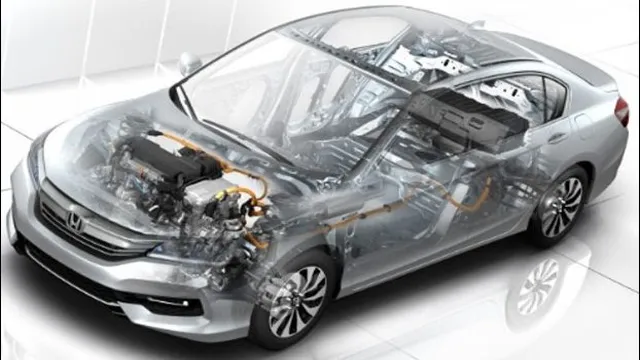
Increased Efficiency & Performance
Hybrid and electric technology are becoming increasingly popular due to their ability to increase efficiency and performance. One of the major benefits of these technologies is that they improve fuel economy. Hybrid vehicles can run on both gas and electric power, resulting in better gas mileage and lower emissions.
Electric vehicles, on the other hand, rely solely on electricity and emit no harmful pollutants while driving. This not only benefits the environment but also results in significant cost savings for the driver. Additionally, the electric motor used in these vehicles provides instant torque, resulting in a smoother and more responsive ride.
With the ability to preserve energy and optimize performance, hybrid and electric technology is paving the way for a more sustainable and efficient future.
Hybrid vs. Electric: What’s the Difference?
Hybrid and electric car technology may sound similar, but they have distinctive differences. A hybrid car relies on a combination of gas and electric power to operate, while an electric car is solely powered by electricity. Hybrid cars have a smaller-sized battery that is utilized to recharge the electric motor, while gasoline powers the main engine.
In turn, this technology allows for higher mileage rates than traditional gasoline-powered vehicles. Electric cars run solely on battery power and are more environmentally conscious. Although electric cars require regular charging and a shorter distance range, they are more cost-efficient compared to traditional gasoline vehicles in the long term.
In contrast, hybrid cars provide the flexibility of not solely relying on an electric charge, making them ideal for long road trips. Ultimately, the decision between a hybrid or electric car comes down to personal preference and lifestyle.
Hybrid Technology Explained
Hybrid vs. Electric: What’s the Difference? Hybrid and electric cars have been gaining more popularity in recent years as people look for more environmentally friendly options. However, some people may be confused about the difference between a hybrid and an electric car.
Let’s explore the basics of both. A hybrid car uses two types of power sources – a traditional gasoline engine and an electric motor. The two work together to power the car, with the gasoline engine typically being used at higher speeds and the electric motor being used at lower speeds or in traffic.
The battery in a hybrid car is charged through regenerative braking, where energy is captured and stored as the car slows down. On the other hand, an electric car is powered solely by electricity. There is no gasoline engine, and instead, electric motors power the wheels.
Electric cars are charged by plugging them into an outlet or charging station, and the range they can travel on a single charge varies depending on the car. So, what’s the difference between a hybrid and an electric car? Essentially, a hybrid car is a combination of a gasoline car and an electric car, while an electric car runs entirely on electricity. Both have their advantages – hybrids have longer ranges and don’t require charging infrastructure, while electric cars produce zero emissions and have lower operating costs.
Ultimately, the choice between the two comes down to personal preference and needs.
How Electric Cars Work
When it comes to choosing between a hybrid and an electric car, it’s important to consider the key differences between the two. Hybrid cars combine a traditional combustion engine with an electric motor and battery, while electric cars rely solely on battery power. This means that hybrids can still run on gasoline when the battery runs low, while electric cars require an external charging source.
However, electric cars have the benefit of emitting zero emissions, making them a more eco-friendly option. Another important factor to consider is range – while hybrids have a longer range than electric cars, newer electric models are closing the gap. Ultimately, the decision between a hybrid and electric car comes down to personal preference and individual needs.
Charging Options for Electric Cars
The main difference between a hybrid and an electric car is that a hybrid uses both gasoline and electric power, while an electric car runs solely on electric power. While hybrids can switch between gasoline and electric power, electric cars need to be plugged in to charge. This means that while hybrids offer more flexibility when it comes to fueling, electric cars are more environmentally friendly as they produce zero emissions.
When choosing between the two, it ultimately comes down to personal preference and the specific needs of the driver. Do you prioritize eco-friendliness over convenience? Are you willing to make the switch to charging your car instead of filling up at a gas station? These are important questions to consider before making a decision. Regardless of which option you choose, both hybrids and electric cars offer a more sustainable and cost-efficient way of driving.
Top Hybrid & Electric Cars on the Market
In today’s world, hybrid and electric car technology is quickly becoming the norm. As people become more concerned with the environment and fuel costs, these vehicles have gained popularity over traditional gas-powered cars. There are several options on the market that are considered the top picks for hybrid and electric cars.
The Toyota Prius, for example, has been an industry leader in hybrid technology for years. The Tesla Model S is a popular electric car option that offers impressive performance and range. The Chevrolet Bolt is another popular electric car that offers an affordable option for those looking to go green.
As hybrid and electric car technology continues to evolve, we can expect even more impressive options to hit the market in the future.
Tesla Model S
Tesla Model S. The Tesla Model S is a top-of-the-line electric sedan that rivals even the most high-end gas-powered vehicles in both speed and luxury. It boasts an impressive range of up to 373 miles per charge, making it a reliable option for long-distance driving.
The car’s acceleration is also notable, going from 0 to 60 mph in just over 2 seconds. But the Model S’s benefits don’t stop at performance; its modern design features sleek lines and a minimalist interior with a large touchscreen display. Additionally, the Model S offers a host of safety features such as adaptive cruise control and self-driving capabilities.
The cherry on top is the car’s eco-friendliness – it produces zero emissions and operates on an all-electric powertrain. The Tesla Model S is a testament to the ingenuity and innovation of the electric vehicle industry, proving that environmentally-conscious vehicles can be both practical and luxurious.
Toyota Prius
If you’re in the market for a hybrid or electric car, the Toyota Prius is definitely a vehicle to consider. Since its debut in the late 90s, the Prius has been one of the most popular hybrid cars on the market. With its impressive fuel efficiency and eco-friendly features, it’s no wonder this car has become a favorite amongst drivers.
The Prius runs on both gasoline and electric power, which allows it to achieve an impressive 56 miles per gallon in combined city/highway driving. Additionally, the car’s batteries can be charged at home or at charging stations, which means you can save money on gas and reduce your carbon footprint. Despite its eco-friendly features, the Prius is still a reliable and practical car.
With comfortable seating for five passengers and plenty of cargo space, it’s ideal for families and commuters alike. Overall, the Toyota Prius is a great option for anyone looking for a hybrid or electric car that delivers on both efficiency and practicality.
The Future of Hybrid & Electric Car Technology
As the world moves towards sustainability and eco-friendliness, hybrid and electric car technology is becoming increasingly popular. The future of this technology looks bright, as more and more automakers are investing in it. With advancements in battery technology, the range of electric cars is increasing, making them more practical for everyday use.
Hybrid cars continue to evolve, with models that can run on electricity alone or switch between gasoline and electric power depending on driving conditions. As regulations on emissions become stricter, it’s likely that hybrid and electric cars will become even more prevalent. There’s no doubt that the future of transportation is headed towards greener alternatives, and hybrid and electric car technology is leading the way.
Conclusion
In conclusion, hybrid and electric car technology has revolutionized the way we think about our vehicles and our impact on the environment. These innovative technologies have given us the power to reduce emissions, increase fuel efficiency, and decrease our dependence on fossil fuels. It’s a win-win situation for both drivers and the planet.
So next time you’re in the market for a new car, consider going hybrid or electric – you’ll be doing your part to save the earth and look pretty cool doing it too!”
FAQs
What is the difference between a hybrid and an electric car?
A hybrid car runs on both gasoline and electricity, while an electric car is powered solely by electricity.
How does hybrid car technology work?
Hybrid car technology uses both an electric motor and a gasoline engine to power the vehicle. The electric motor provides power at low speeds and the gasoline engine kicks in at higher speeds or when more power is needed.
What are the benefits of owning a hybrid car?
Hybrid cars are more fuel-efficient and environmentally friendly than traditional gasoline-only vehicles. They also have lower emissions and can save money on gas in the long run.
How does electric car technology work?
Electric car technology uses rechargeable battery packs to power the vehicle. The battery is charged by plugging the car into an electric outlet.
What are the benefits of owning an electric car?
Electric cars are even more environmentally friendly than hybrid cars because they produce no emissions. They also have lower fuel costs and require less maintenance than traditional gasoline-only vehicles.
What is the range of most electric cars?
The range of most electric cars is between 100 and 300 miles on a single charge, although some newer models have ranges up to 400 miles.

